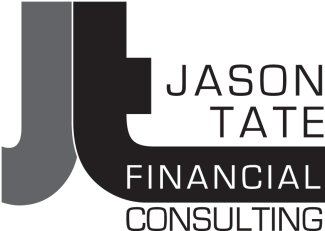What’s Your Risk Management Plan?
Most people couldn’t bear the financial hardships resulting from unexpected events, such as a major house fire, a car accident, a disability or the premature death of a family breadwinner, which is why the most important component of a sound financial plan should be your personal risk management strategy. Fully protecting your and your family’s financial future against the unexpected will allow you to move forward with greater confidence in your wealth management decisions.
What exactly does it mean to “fully” protect your financial future? Of course, it involves insurance planning and the purchase of different forms of insurance. But before you overextend and become insurance poor, it would be important to carefully assess your risk exposures and develop a risk management plan that fits your particular needs. That requires a full understanding of all of the protections available to you and how to optimize their capacity to protect you.
Disability Income Protection
For most people, their most valuable asset is their ability to earn an income. The odds of becoming disabled for a period of six months or longer are far greater than any of the other threats to your financial security, including losing your home in a fire, or a major car accident, or a premature death. Obtaining the best possible disability income protection plan should be your top risk management priority. Because your risk of disability increases as you get older, disability insurance can become very expensive. The best time to purchase disability coverage is when you’re young and healthy.
The most important considerations for purchasing disability insurance are:
- Obtaining a policy that protects your occupational specialty for as long as possible
- Insuring future income increases
- Relying first on an individual disability insurance plan and only using a group plan as a supplement
Disability income planning has become a specialty in the insurance industry, and it would be important to work with a disability specialist with access to the top disability insurance carriers in the industry.
Property and Casualty Protection
Generally, property and casualty insurance (P&C) protects us against financial loss resulting from damage to our property as well as the liability of someone harmed. Auto insurance, homeowner’s insurance, renters insurance and personal liability insurance are all forms of P&C coverage. The general rule is that, if you own it, insure it. Of course, there has to be an insurable interest which an insurance company deems worth protecting.
The other rule when it comes to P&C coverage is: Don’t skimp on your coverage to save money; rather find all ways to optimize your capacity in your insurance coverage. For example: Choose the highest possible deduction for which you are financially able to cover. Paying a $1,000 deductible for a dented bumper or covering the first $2,500 of the cost of a roof replacement won’t break you. The higher deductible levels will lower your premium costs which should be redirected towards increasing your liability limits.
Personal Liability Protection
One of the least understood forms of protection is personal liability insurance; and with its capacity to form an extensive umbrella of financial protection for a very little cost, it’s also the most overlooked. Most people don’t consider it because they think they have plenty of liability coverage in their homeowners and auto insurance policies. Considering that the maximum liability policy is just $300,000 in most homeowners and auto policies, it would only cover a fraction of a typical liability claim involving a serious injury or death.
Most people are just a slip on a banana peel away from a major lawsuit; however, people of wealth or high income earners, such as physicians, can actually become targets of people seeking to benefit from an accommodating court system. For a few hundred dollars a year, you can provide yourself with a million dollars of umbrella protection. As a general rule, you should have umbrella liability protection to equivalent to the value of all of your assets.
Life Insurance Protection
The purchase of a life insurance policy may never make anyone’ss’ top ten list of favorite things to do. But, when given the opportunity to consider the range of purposes it can serve, it could turn out to be the most important financial instrument you own.
- It creates an instant estate – Life insurance creates the capital a family needs when there are sufficient assets to cover their needs.
- It provides tax advantages – Life insurance has a host of tax properties that make it attractive as a financial instrument. The death benefit is tax free to the beneficiaries. The cash value accumulates tax free. And, under certain circumstances, you can access your cash values tax free. Certain policies, such as Universal Life allow for tax free withdrawals of principal and most cash value policies allow for policy loans which are tax free.*
- It’s cost effective – There is no other financial instrument that can provide the amount of capital needed to provide for surviving family members or to settle the costs of a large estate, or to buy out the family of a deceased business partner, as inexpensively as life insurance.
The mistake many people make is to wait too long before purchasing life insurance. As with disability income insurance, the time to buy life insurance is when you are young and healthy.
*This content is developed from sources believed to be providing accurate information. The information provided is not written or intended as tax or legal advice and may not be relied on for purposes of avoiding any Federal tax penalties. Individuals are encouraged to seek advice from their own tax or legal counsel. Individuals involved in the estate planning process should work with an estate planning team, including their own personal legal or tax counsel. Neither the information presented nor any opinion expressed constitutes a representation by us of a specific investment or the purchase or sale of any securities. Asset allocation and diversification do not ensure a profit or protect against loss in declining markets. This material was developed and produced by Advisor Websites to provide information on a topic that may be of interest. Copyright 2026 Advisor Websites.



